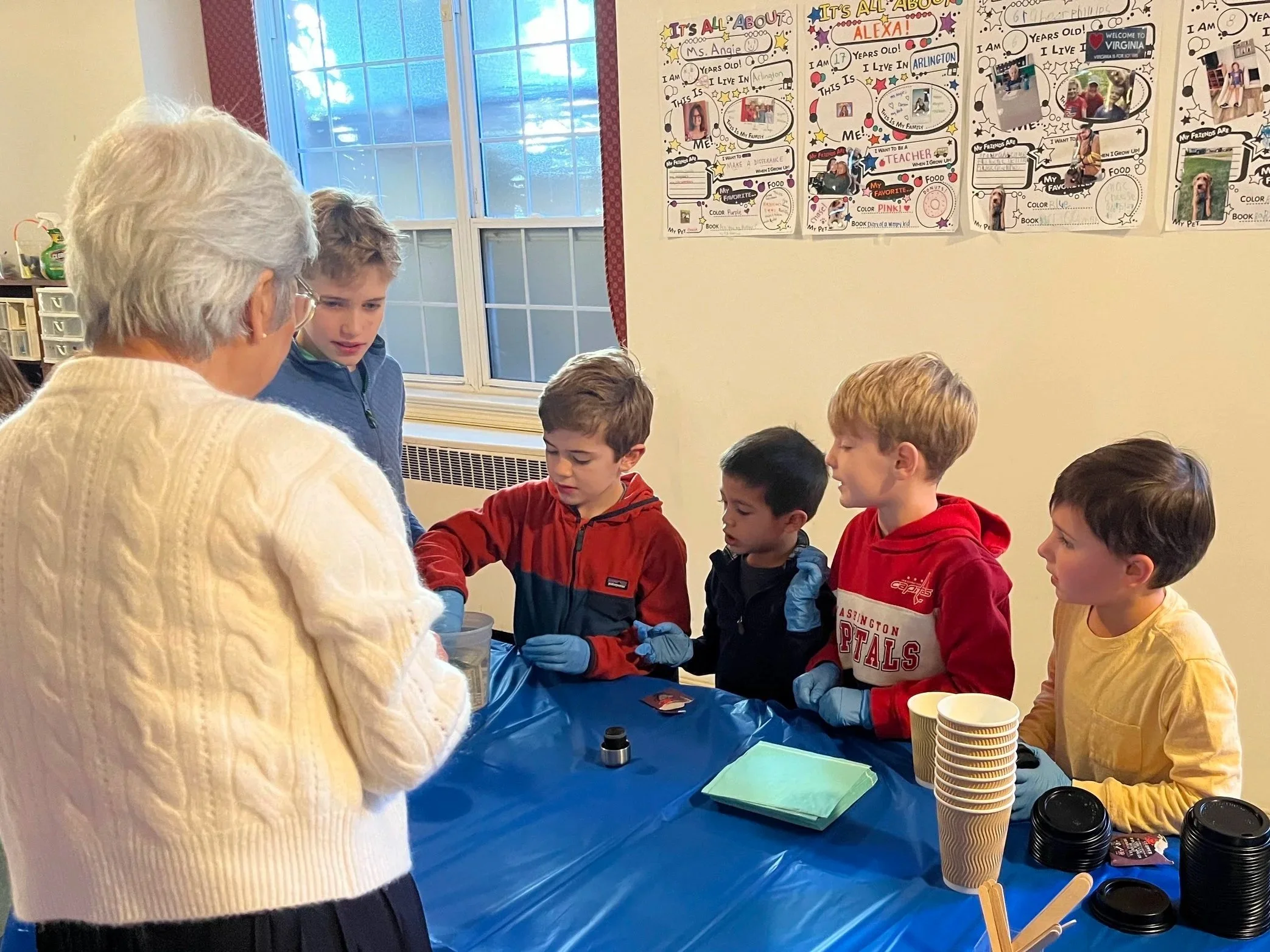The Kids are All Right: How to Explain TVS to a Grandparent
Written by Maria Vogelei
My parents have attended every TVS exhibition, without fail, since my daughter, now an Adventure learner, started in Spark Studio seven years ago. If you’ve been at TVS for a while, you might recognize them by now– matching gray hair, small in stature, both wearing a look of polite confusion as my kids pull them through the studios. They have no idea what is going on.
When I was in school, my mom would wake at 5am every morning to iron crisp creases along the sleeves of my button down Oxford shirt and the pleats of the plaid skirt that made up my all girls school uniform. She is perplexed, to put it politely, by the bare feet and brown-soled socks that have become the mark of a TVS learner. My father is similarly bewildered. He comes from a family of professors, doctors, real estate magnates, and even a first lady (no, not the one with the shoes). A trained architect, he, along with his siblings and cousins, had to start over professionally when they emigrated to the U.S.--their advanced degrees bearing little if any significance in their new home. Working entry-level jobs, they channeled their ambitions into us children, measuring their success through our academic achievements rather than their own. You can imagine then how the language of “badge plans” and "exhibitions" instead of tests does not translate for him.
I once tried to share with my father the research findings from the National Academies of Sciences that revealed that students in "high-achieving schools" now belong on the same at-risk list as kids living in poverty and foster care, and those with incarcerated parents. I was met with a blank stare. The TVS belief that who you are is far more important than how much you know falls without sound on ears that have only heard: Succeed. Succeed. Succeed.
And then, last year, something unlocked. After attending the business fair exhibition where he paid a group of spirited Spark learners $3 for a tepid cup of hot chocolate and a “flavored” marshmallow, my father remarked, “I have never seen children so happy to be at school.” This opened up a conversation on the kind of learning that happens when a child feels a sense of belonging, comfort, and security at school. Research shows that when children feel secure and valued at school, they show up more consistently, push themselves harder, and persevere through challenges. Their learning becomes personal—something they own rather than something being done to them. This sense of security doesn't just create happier students; it typically translates into stronger academic results. Finally, I was speaking my father’s language.
A recent article by Jal Mehta, Professor of Education at Harvard Graduate School, reinforced this idea. He argued that reducing the constant stream of assignments and exams would give students more time to carefully develop their skills, focus deeply on their work, and think critically about what they're learning—ultimately building deeper knowledge, stronger abilities, better judgment, and greater wisdom.
I don’t know a grandparent that doesn’t wish for their grandchildren to feel secure– on all accounts. You would be hard pressed to find a grandparent who will tell you that they prioritize your child’s grades over security and belonging. So if you ever find yourself having to convince your mom, dad, aunt, uncle, colleague or friend about the merit of our “no grades” school, my unsolicited advice is this: Explain that we focus first on nurturing a sense of safety in our learners– security in who they are, what they are capable of, where they belong, and why they matter. Ask them if, in our world today, that metric of security and belonging matters more than a grade or bumper sticker from an elite university. Watch them pause. Watch them really consider it. And then assure them of what you already know: These TVS kids are going to be all right. More than all right, actually. They're going to be secure, resilient humans who know their own worth—and that foundation will carry them further than any report card or university bumper sticker ever could.

